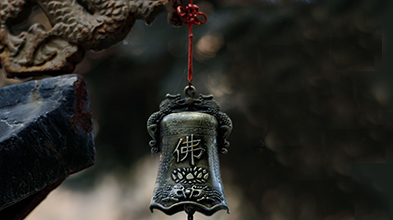Wisdom from Chinese Literary and Buddhist Classics
365 Days for Travelers
2/7: LIFE-RELEASING
Venerable Master Hsing Yun (1927 - , Fo Guang Shan)English translation: Miao Guang and Zhi Yue
Life-releasing means to respect life, to ensure that sentient beings live without fear, and to give them a safe environment to reside in. The best examples of life-releasing are not to fish at a riverbank, not to torture animals, and not to kill life or harm the environment.
In Buddhism, which emphasizes humanity, life-releasing also includes “releasing people,” which is to give others a way out. Working for the happiness of others by giving faith, joy, hope, and convenience is proactive life-releasing. This also includes when we help others find a way out of difficult situations, provide relief aid, and give others causes and conditions.
There is a saying, “whether sentient or non-sentient, all will attain the Buddha’s wisdom.” Every inanimate object such as a stem of flower, a blade of grass, a table, a chair, or a piece of carpet has life; and should be well preserved and utilized to prolong its lifespan and to give value to it. Such is the Buddhist perspective on life-releasing.
For those who are practicing the act of life-releasing nowadays, they must be careful with whether their actions are in fact causing death.
Who is to speak of the insignificance of animal lives;
They are just the same flesh and bones.
You are urged not to shoot the spring birds,
For the nesting babies await their mother’s return.
── from Bainian Fo Yuan
(Buddhist Affinities Across 100 Years)
GRIEVE FOR THE FALLING LEAVES
Tune: Dreaming of the SouthQu Dajun (1630 - 1696, Ming Dynasty)
English translation: John Balcom
Grieve for the falling leaves;
The leaves fall, fall to make spring.
Every year, the leaves fly away and still there are leaves.
Every year people depart, leaving fewer people;
Upon the rouge there are fresh tears.
Grieve for the falling leaves;
The leaves fall, never to return.
Though they return, flowers cover the trees,
The new branches are not the ones in the past;
Slowly the water flows away.
── from Zhonghua Shici
(Chinese Classical Poetry)
What's New?
FEBRUARY

Humble Table, Wise Fare
INSPIRATION
Recorded by Leann Moore 0:11
The reason to demand more is poverty;
the result of joyous giving is wealth.

Dharma Instruments
Venerable Master Hsing Yun grants voices to the objects of daily monastic life to tell their stories in this collection of first-person narratives.

Sutras Chanting
The Medicine Buddha SutraMedicine Buddha, the Buddha of healing in Chinese Buddhism, is believed to cure all suffering (both physical and mental) of sentient beings. The Medicine Buddha Sutra is commonly chanted and recited in Buddhist monasteries, and the Medicine Buddha’s twelve great vows are widely praised.

Newsletter
What is happening at Hsingyun.org this month? Send us your email, and we will make sure you never miss a thing!





